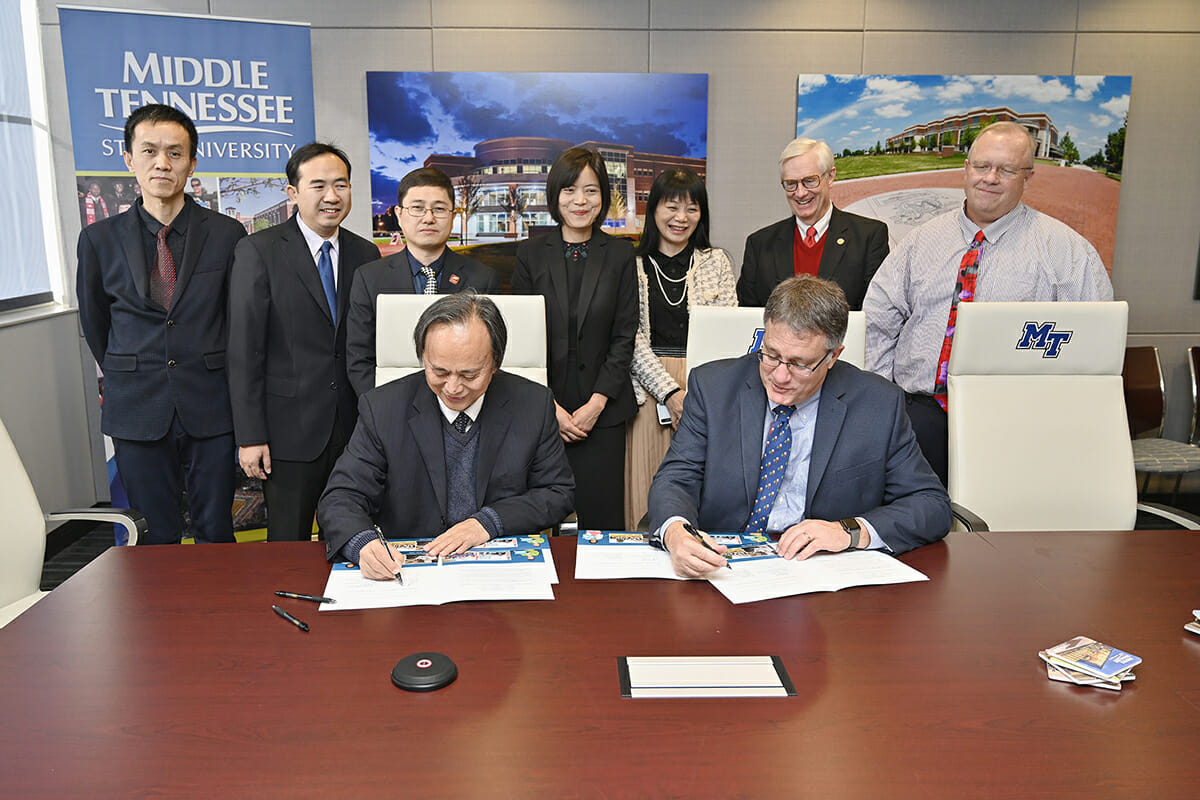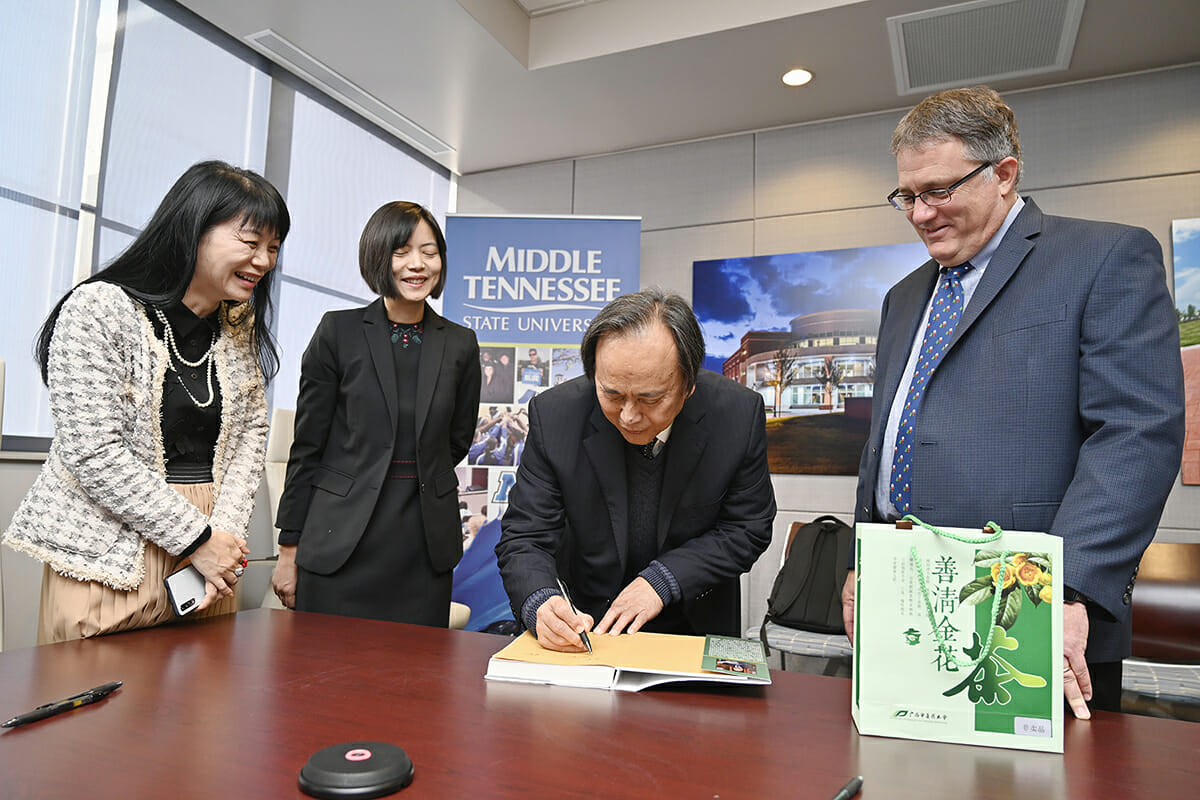Officials with Middle Tennessee State University and China’s Guangxi University of Chinese Medicine signed an agreement Monday, Dec. 17, solidifying their ties regarding cooperative research into agricultural residues and traditional medicine.
MTSU Provost Mark Byrnes signed the documents along with Jiagang Deng, part of a team of researchers and a major editor for the book, “Medicinal Studies of Agricultural Residues I,” which he signed and presented to Byrnes during the meeting, held in the President’s Conference Room.

Guangxi University researcher Jiagang Deng, left, and MTSU Provost Mark Byrnes sign documents solidifying the universities’ cooperative research into agricultural residues and traditional residues as their respective colleagues look on during a Dec. 17 meeting in the President’s Conference Room in MTSU’s Cope Administration Building. (MTSU photo by Andy Heidt)
In the agreement, MTSU will join the team of collaborative institutes of the Guangxi Collaborative Innovation Center for Research on Functional Ingredients of Agricultural Residues, a research institute based in China at Guangxi University.
Together, MTSU and the Chinese institutes will participate in joint programs of medicinal research and product development on agricultural botanical residues, including American ginseng extract and persimmon, mango and sugar cane leaves.
“We’re excited about the opportunity of continued cooperation with you,” Byrnes told Deng and the members of the visiting Chinese delegation. “We look forward to educational opportunities for our faculty and students and for economic opportunities that will arise with this.”
Through interpreter Iris Gao, an associate professor in the MTSU School of Agriculture and a researcher with the International Ginseng Institute, Deng expressed “how very grateful [he was] with MTSU” for the partnership and thanked his American colleagues for their hospitality during the three-day visit. He also praised Gao for her role in the process.
Deng said he and his team look forward to “successful collaboration opportunities” and expressed gratitude “for the opportunity for our faculty and students to visit MTSU. … We welcome you, your president (Sidney A. McPhee) and colleagues to visit our campus.”

Guangxi University researcher Jiagang Deng, center right, autographs a copy of the book “Medicinal Study of Agricultural Residues I” that he presented Dec. 17 to MTSU Provost Mark Byrnes, right, as colleagues Xiaotao Hou of Guangxi University, left, and MTSU’s Iris Gao observe. Deng, who wrote the book with members of his research team, also presented Byrnes with Chinese herbal tea from Guangxi University of Chinese Medicine. (MTSU photo by Andy Heidt)
The agreement also includes the following components:
• Both universities will promote study of the biochemical and physiologic effects of traditional medicine and the mechanisms of action and toxicity of botanical materials.
• MTSU and Guangxi will jointly contribute to completing and publishing the reference text “Medicinal Plants in China and the United States” and will pursue funding to publish it in their respective countries.
• Based on Guangxi University’s experience, both universities will be willing to make joint efforts to develop and promote health products derived from traditional botanical medicine in the U.S. market.
• Both will facilitate the short-term exchange of staff and postgraduate students.
• Both universities will share ownership rights to intellectual property they jointly develop.
“Not only will the research collaboration be great, but both universities will work together in the commercialization of herbal medicines,” Gao explained.
MTSU alumnus Paul Martin Jr., chief managing member of Clarity Resources LLC, called the updated partnership “a strong investment in time and money” for MTSU’s McPhee, whose trips to China to develop educational partnerships for the university are funded by private donors.
“MTSU’s oldest China collaboration is one Dr. McPhee brought, and the program is to the point where it offers academic and commercial opportunities — and MTSU’s a prime business area,” Martin said.
In addition to the book, Deng also presented Byrnes with a package of two containers of herbal tea from the Guangxi University of Chinese Medicine.
— Randy Weiler (Randy.Weiler@mtsu.edu)

COMMENTS ARE OFF THIS POST